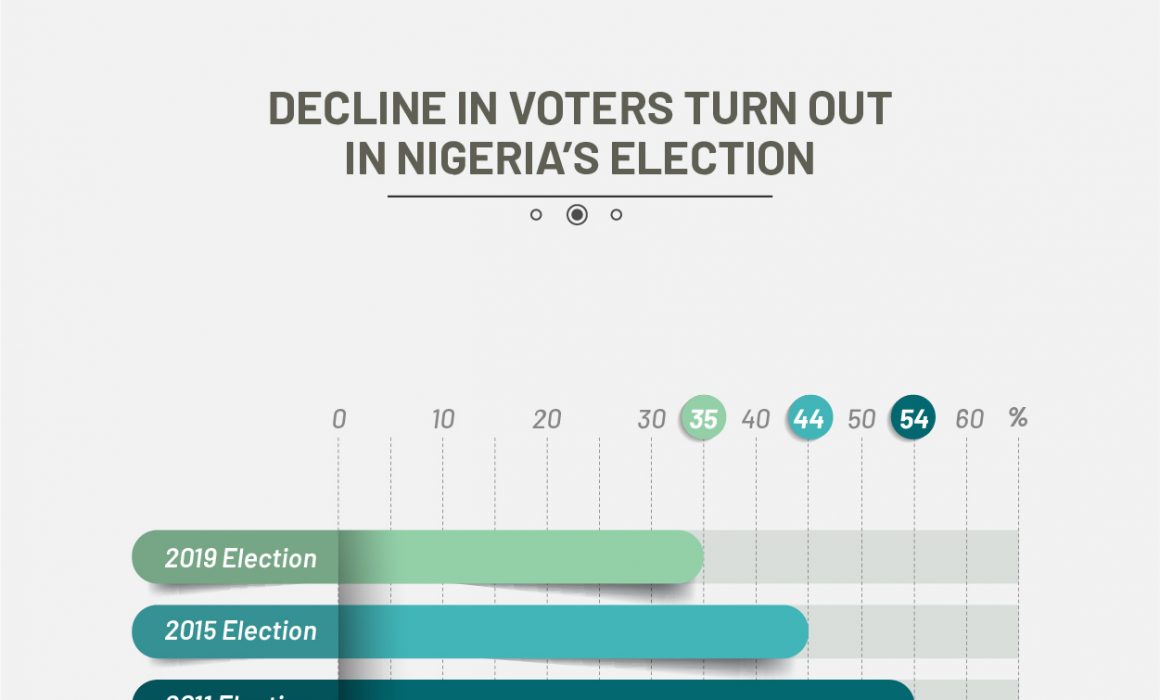Reviewing the Process for Voters Registration
This record is significant because the number of voters’ turnout in any election is determined by the number of registered voters. Indeed, statistics show that the voter turnout for Nigerian presidential elections has been dropping since 2003.

While the result recorded thus far is significant, State Craft Inc. presents key recommendations to accelerate the numbers:
Voters Education
Another important insight we see from the figures presented above is that on one hand, although voters registration influences voters’ participation yet on the other hand, the number of registered voters does not always equal the number of voters that participate in elections. Citizens, since they occupy the highest office of the land, need to be educated on the power of their office and most especially the need for them to ensure that they exercise their civic rights to the fullest.
USSD Feature
Implementing a process which requires access to internet for voters’ registration easily excludes people in areas without internet. Consideration needs to be given to the 100+ million Nigerians that although they have mobile phones, yet, many lack access to internet. One recommended option to manage this is by augmenting the process to include USSD feature, hereby enabling people to register via dialling a short code.
Multilingualism
It has been recorded that Nigeria has over 500 languages, with 4 dominant languages – Yoruba, English, Igbo, Hausa and Pidgin/English. Public communication, as a standard principle, should reflect this diversity. The country’s electoral commission, the Independent National Electoral Commission (INEC) and Civil Society need to produce visual and audio content in different languages.
Community Engagement
Continuous community engagement cannot be negotiated no matter how innovative the process introduced is. Effective community engagement is like a fire when it keeps burning, it continues to expand and impact different places. It literally starts with one person understanding the importance and process of voters registration; discussing with members of the family; members of the family taking that message to their various community and it continues to expand.


